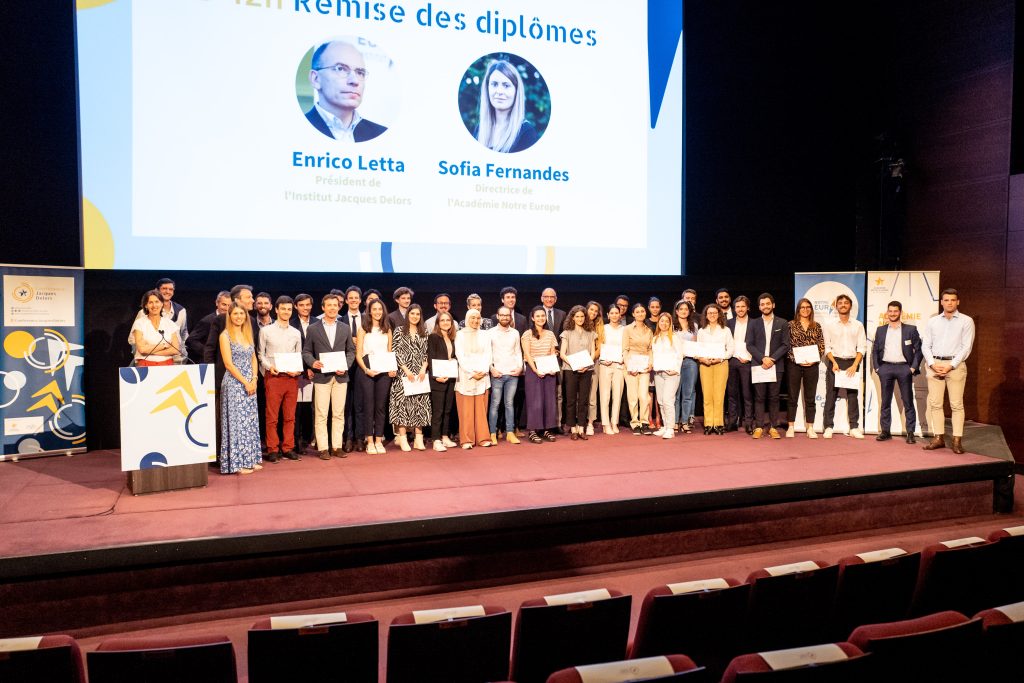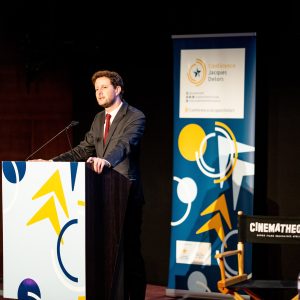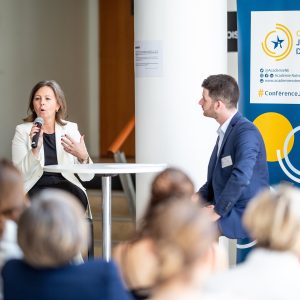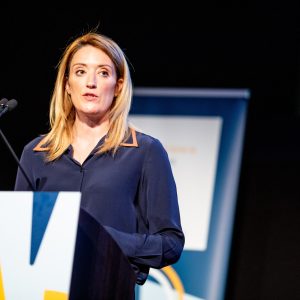Conférence Jacques Delors 2022 : Promesse d’Europe

La Conférence Jacques Delors est l’évènement annuel phare de l’Académie Notre Europe. Son objectif est double. D’une part, ouvrir un espace de dialogue entre des personnalités européennes et des jeunes pour que ces derniers expriment leurs attentes relatives au projet européen, que la guerre en Ukraine conduit à reformuler. D’autre part, permettre aux jeunes de mieux comprendre l’Union européenne et ses politiques, notamment les opportunités qu’elle leur offre en matière de mobilité, formation ou engagement citoyen, perçues comme une promesse d’Europe plus inclusive et solidaire. La seconde édition de la Conférence Jacques Delors se tiendra le 28 juin prochain à la Cinémathèque française, Paris XIIe
Cet évènement s’articule autour de trois moments :
- De 10h à 12h30 : Des débats et des interventions de personnalités européennes avec en invitée d’honneur la Présidente du Parlement européen, Roberta Metsola. Cette édition sera l’occasion d’échanger autour de la démocratie comme valeur, et de la paix comme bien commun.
- De 14h à 16h : Des stands pédagogiques et des ateliers interactifs seront animés par des associations et des organismes européens. Les participants pourront ainsi découvrir les opportunités de mobilité et de formation qui se présentent à eux. Cette année nous accueillerons notamment les Agences Erasmus+, le Réseau Eures ou l’organisation EuroAppMobility qui seront disponibles pour échanger avec les jeunes.
- De 16h à 18h : La projection du film Olga, réalisé par Elie Grappe clôturera la journée.
Regarder le replay de la Conférence Jacques Delors 2022
Retour en images sur l’édition 2022






